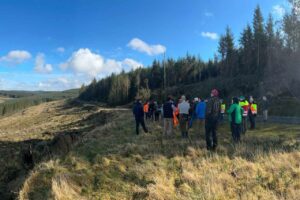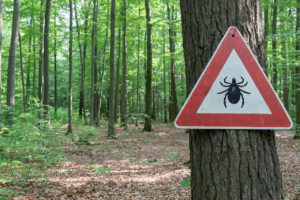
Mike Seddon, Chief Executive at Forestry England talks about the Forestry Commission centenary, the importance of working together, and the next 100 years of forestry.
Whether it’s the historic New Forest, the rigs and dales of Dalby or the vastness of Kielder, people expect the nation’s forests to be there.
But 100 years ago, our landscapes looked very different. For centuries, forest cover had gradually decreased and the strain of war devastated woodlands to the point where only five percent of the UK was left covered by trees.
Since then, woodland area has more than doubled – an achievement made possible by hard work, innovation and expertise from Forestry Commission people in collaboration with other foresters, scientists, landowners, charities and business.
An increase of woodland on this scale is something to be celebrated, but there’s a lot more to do.
Facing the future
Amid the climate crisis, increasing demands for timber and an urgent need to protect our wildlife; our forests have never been so important.
While we’re up against these challenges, wouldn’t it be wonderful to see our hard work lay the foundations for another series of forestry celebrations 100 years from now?
Innovative thinking, science and new research will be fundamental in this journey. And crucially, to achieve what’s necessary in such a short timeframe, collaboration will be at the heart of success.
As I take up the Chief Executive reins at Forestry England, I’m really interested in bringing ideas and expertise together, to find solutions in response to the biggest challenges of our time. That includes working with colleagues and partners from across the Forestry Commission, in Scotland and Wales, throughout the forestry sector and further afield.
Lessons and learning
The Forestry Commission’s first 100 years has been very successful, but it hasn’t always been a smooth ride.
We’ve had ups and downs, tried different approaches, faced a number of obstacles and admittedly made a few mistakes.
But life is a learning curve, and one of the things we’ve learnt is that forestry is dynamic. Like trees, our industry will always grow and evolve, and it’s up to organisations like ours to do the same.
The story of a chap called Colonel H Packwood comes to mind. Packwood was an engineer with the Commission in the 1950s, charged with creating roads and bridges to access land where forests were being planted.
As materials became more expensive, Packwood needed to find more cost effective, long lasting solutions. Bridges were a particular issue as materials were in short supply following the war, while maintenance also caused him plenty of headaches.
In looking for answers, Packwood tried a variety of things. Of course he slipped up a few times on the way but then inspiration struck.
Using old tram rails, which were effectively scrap metal as buses replaced trams in town and city centres, Packwood found he had the perfect low cost answer. With rails laid side by side across the gap, a mantle of concrete was added to form extremely strong, low maintenance bridges, a few of which survive to this day.
The hard work begins
Today, just like Packwood did in his time, foresters are facing a barrage of complex challenges. While we’re able to benefit from past investments in science and research, our forestry operations, silvicultural systems and forest infrastructure will need to adapt further in tune with the changing environment that lies ahead.
I’d like to think the hard work we put in now will enable future generations to look back with pride in 2119 on the contribution our forests made in achieving net zero emissions, minimising the impact of imported pests and diseases and meeting the constantly developing social, economic and environmental aspirations of the people of this country.
Just like the past century, evolution and innovation will play a fundamental role in forestry over the next 100 years.
Disclaimer: The views and opinions expressed in this article are those of the author and do not necessarily reflect the views of the Institute of Chartered Foresters.






